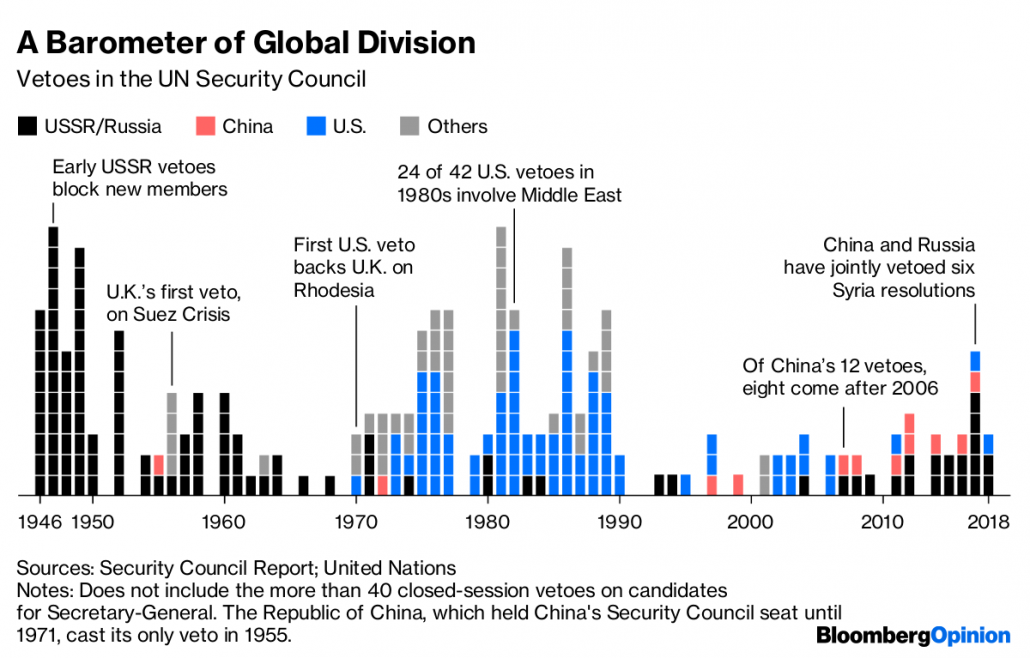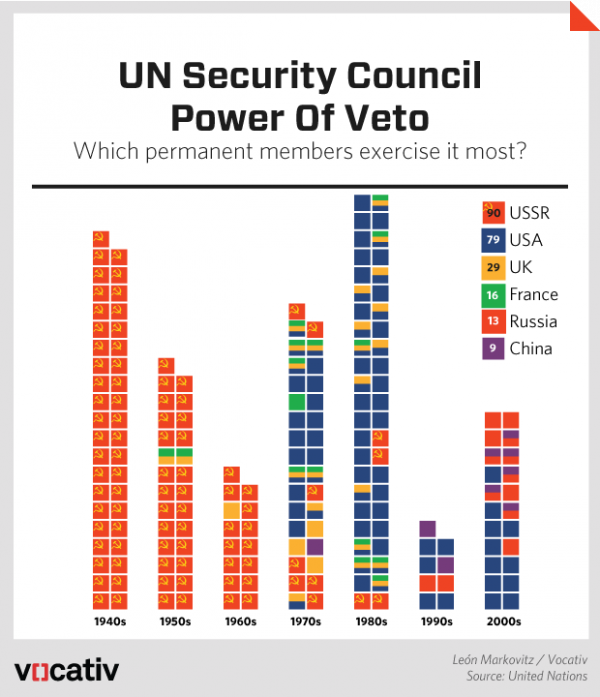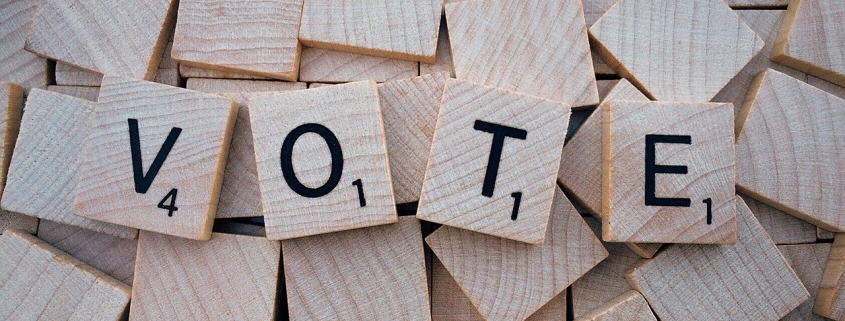Criticisms of the veto
Topic of Study [For H1/H2 History Students]:
Paper 1: Safeguarding International Peace and Security
Section B: Essay Writing
Theme III Chapter 2: Political Effectiveness of the UN in maintaining international peace and security
Yea or nay?
As discussed in the previous article on the role of the Security Council, the Permanent Five (P5) Members possess special voting rights to either support or block resolutions.
Article 27(3) of the UN Charter states that consensus within the Security Council is only made possible with the “affirmative vote of nine members including the concurring votes of the permanent members“.
This means that if at least one of the P5 members exercised the “right to veto” (negative vote), the resolution would not be approved.
The use of veto by P5 members
Although the Charter states that the United Nations was formed with the primary aim to “save succeeding generations from the scourge of war“, the repeated use of the veto has sparked criticism among member nations over the relevance of the international organisation.
The following illustrations highlight the veto problem ever since the UN’s inception.


A flawed creation or a necessary evil?
One of the main criticisms was that the veto had allowed the P5 members to wield disproportionate powers, thereby creating an unrepresentative structure in the United Nations. On the other hand, defenders of the veto argued that the veto was essential in retaining membership of Great Powers and averting another world war.
For most UN Member states, Article 27 UN Charter is a codification of the painful reality that some States are more equal than others. This idea is obviously at odds with the principals laid down in the UN Charter, such as Article 1(2), pursuant to which the UN aims at developing friendly relations among nations based on respect for the principle of equal rights of peoples, and Article 2(1) which affirms the principle of sovereign equality as one of the basic pillars of the world body.
… The concerns underpinning the insertion of Article 27 were well-founded in light of the demise of the League of Nations. This organisation never managed to live up to its aspirations due to the requirement of unanimity among all members of its Council on the one hand, and the lack of support from various power States on the other hand… None of the P-5 has abandoned ship. Moreover, no direct military confrontation has occurred between them.
An excerpt from “Security council reform: a new veto for a new century?” by Jan Wouters and Tom Ruys.
Reforms to the veto mechanism
In 2015, France proposed the practice of ‘veto restraint‘ in the United Nations Security Council, particularly for conflicts of mass atrocities and genocide. Its basis was that the veto should not be abused.
Interestingly, France early on broke ranks with the other permanent members of the Security Council and led the third initiative calling for veto restraint.
… Veto restraint in atrocity situations was initially suggested in 2001 by French Foreign Minister Hubert Védrine at a roundtable sponsored by the ICISS in Paris. He called for the permanent members to create a “code of conduct” for themselves and not to apply their veto to block humanitarian action where their own national interests were involved.
An excerpt from “Existing Legal Limits to Security Council Veto Power in the Face of Atrocity Crimes” by Jennifer Trahan.
Another proposed reform was the expansion of the Permanent Membership to create a more representative structure in the Security Council. The G4 nations, comprising of Germany, Japan, India and Brazil, asserted that their admission would maintain the relevance of the principal organ.
The concept of new permanency is prefaced on the notion that the current council does not reflect the geopolitical realities of the twenty-first century. In short, the council’s permanent membership is outdated. To address the disequilibrium, the G4 proposes the inclusion of six new permanent seats and five new elected seats.
An excerpt from “UN Security Council Reform” by Peter Nadin.
However, any reform made to the Security Council membership composition requires full consensus from the existing Permanent Members.
What can we learn from this article?
Consider the following question:
– Assess the reasons for the limited effectiveness of the proposed reforms to the Security Council.
Join our JC History Tuition to derive a better understanding of the veto mechanism and other critical areas of study for the United Nations.
The H2 and H1 History Tuition feature online discussion and writing practices to enhance your knowledge application skills. Get useful study notes and clarify your doubts on the subject with the tutor. You can also follow our Telegram Channel to get useful updates.
We have other JC tuition classes, such as JC Math Tuition and JC Chemistry Tuition. For Secondary Tuition, we provide Secondary English Tuition, Secondary Math tuition, Secondary Chemistry Tuition, Social Studies Tuition, Geography, History Tuition and Secondary Economics Tuition. For Primary Tuition, we have Primary English, Math and Science Tuition. Call 9658 5789 to find out more.











